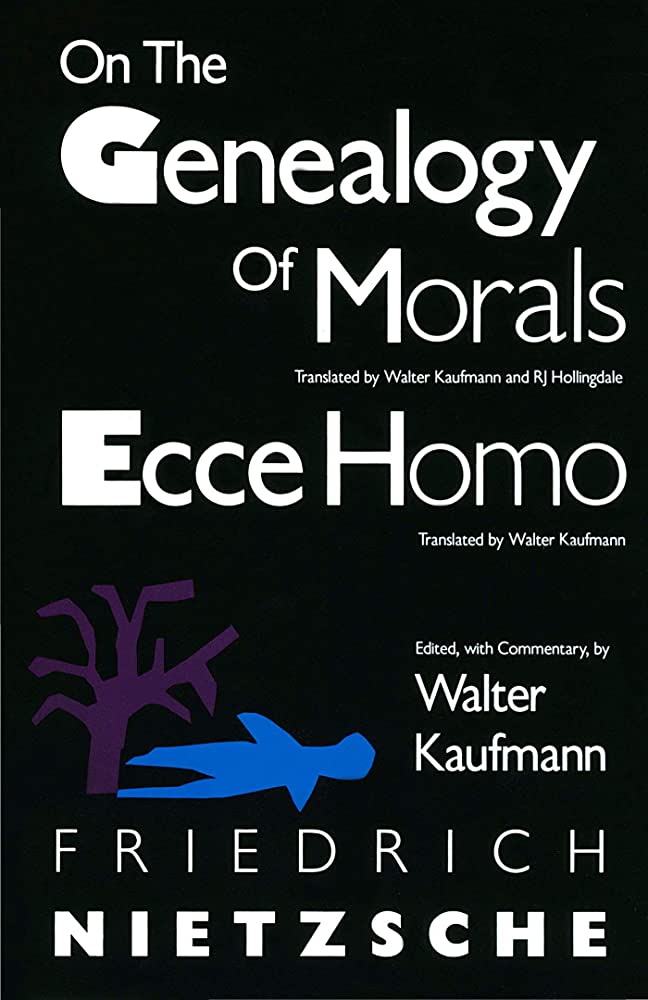← On the Genealogy of Morals and Ecce Homo
On the Genealogy of Morals and Ecce Homo Third Essay. What Is the Meaning of Ascetic Ideals?
Author: Friedrich Nietzsche, Walter Kaufmann Publisher: New York, NY: Vintage Books. Publish Date: 1887 Review Date: Status:💥
Annotations
133
What is the meaning of ascetic ideals?—In the case of artists they mean nothing or too many things; in the case of philosophers and scholars something like a sense and instinct for the most favorable preconditions of higher spirituality; in the case of women at best one more seductive charm, a touch of morbidezza in fair flesh, the angelic look of a plump pretty animal; in the case of the physiologically deformed and deranged (the majority of mortals) an attempt to see themselves as “too good” for this world, a saintly form of debauch, their chief weapon in the struggle against slow pain and boredom; in the case of priests the distinctive priestly faith, their best instrument of power, also the “supreme” license for power; in the case of saints, Anally, a pretext for hibernation, their novissima gloriae cupido,2 their repose in nothingness (“God”), their form of madness. That the ascetic ideal has meant so many things to man, however, is an expression of the basic fact of the human will, its horror vacui3 it needs a goal—and it will rather will nothingness than not will.—
215
2 Newest lust for glory.
3 Horror of a vacuum.
135
For there is no necessary antithesis between chastity and sensuality;1
135
At least this holds good for all those well-constituted, joyful mortals who are far from regarding their unstable equilibrium between “animal and angel” as necessarily an argument against existence—the subtlest and brightest among them have even found in it, like Goethe and Hafiz, one more stimulus to life. It is precisely such “contradictions” that seduce one to existence … On the other hand, it is only too clear that when swine who have come to grief are finally induced to worship chastity—and there are such swine!—they will see and worship in it only their antithesis, the antithesis of failed swine—and one can imagine with what tragic zeal and grunting they will do so!—
136
This does not, of course, help us to avoid asking this other question, what that male (yet so unmanly) “country simpleton” was to him, that poor devil and nature boy Parsifal, whom he finally made into a Catholic by such captious means—what? was this Parsifal meant seriously? For one might be tempted to suppose the reverse, even to desire it-—that the Wagnerian Parsifal was intended as a joke, as a kind of epilogue and satyr play with which the tragedian Wagner wanted to take leave of us, also of himself, above all of tragedy in a fitting manner worthy of himself, namely with an extravagance of wanton parody of the tragic itself, of the whole gruesome earthly seriousness and misery of his previous works, of the crudest form, overcome at long last, of the anti-nature of the ascetic ideal. This, to repeat, would have been worthy of a great tragedian, who, like every artist, arrives at the ultimate pinnacle of his greatness only when he comes to see himself and his art beneath him—when he knows how to laugh at himself.
136
Is Wagner’s Parsifal his secret laughter of superiority at himself, the triumph of his ultimate artist’s freedom and artist’s transcendence? One could wish that it were, to repeat again; for what would a seriously-intended Parsifal be? Must one really see in him (as someone once put it to me) “the product of an insane hatred of knowledge, spirit, and sensuality”? A curse on the senses and the spirit in a single breath of hatred? An apostacy and return to morbid Christian and obscurantist ideals? And ultimately a self-negation, a self-cancellation on the part of an artist who had hitherto aimed with all the power of his will at the reverse, at the highest spiritualization and sensualization of his art? And not of his art only; of his life, too.
